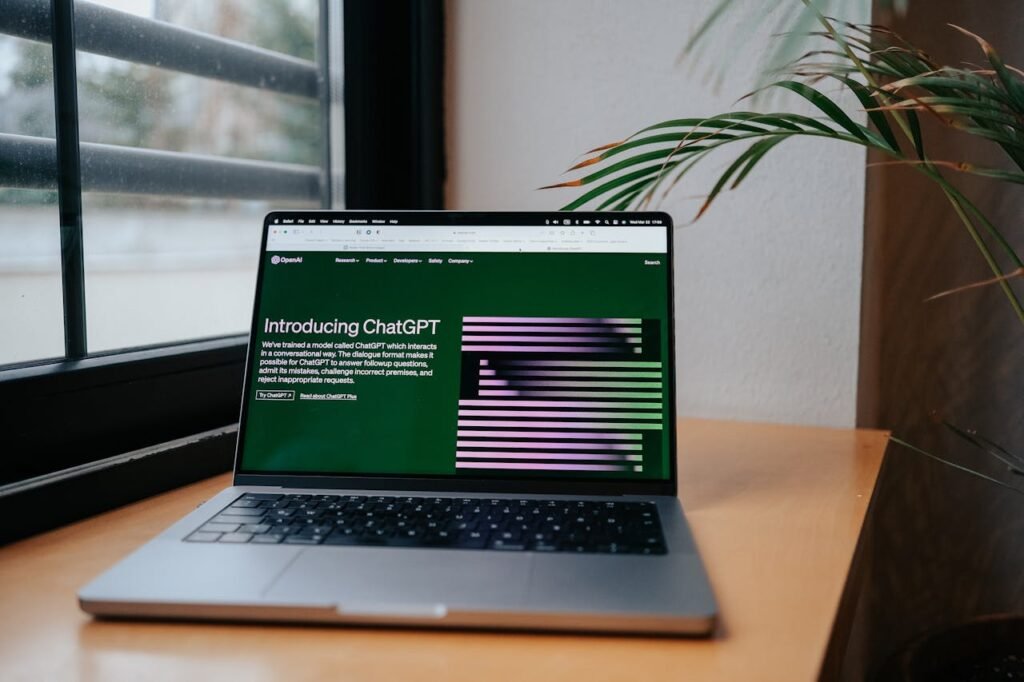How to Study Less and Get Higher Grades: 7 Proven Tips That Actually Work
How to study less and get better grades, what a dream! It’s not only possible but also equipped by real science and real tactics. Many students believe incorrectly that to be academically successful, they just need to lock themselves in a room for hours and hours on end.
In reality, knowing how to study is more important than how long you study. I mean, you could spend half as long studying as someone who’s pulling multiple-all-nighters and still beat them if you know what you’re doing.
In this guide, you’ll learn 7 practical techniques that will allow you to study less, while still getting the same – or better – results. This is not only theory but also lived experience from top-performing students and productivity experts and real cognitive science studies.
You’ll learn how to read smarter, use AI tools, batch your work, and eliminate poor techniques, all while studying less hours!
If you’re reaching exhaustion, overwhelmed with your to-do list, or want better grades without being miserable, then this post is for you!
If you’re ready to revolutionize the way you study and be more productive than you have ever experienced, let’s go! Let’s get smarter not harder – because you don’t have to work harder to get better grades!
1. Why Studying More Hours Won’t Guarantee Better Grades

In reality, for most of our educational experiences, we were taught that more time studying equals better outcomes. Like if you’re not studying five or six hours a day, you aren’t studying enough. But, the reality is, it isn’t the time you spend studying.
You could be studying all day, and it will have little value if you do not have a good studying method, while another person studying 1-2 hours a day with the right studying plan, could possibly be at the top of their class.
Have you heard of Parkinson’s law? It simply states that, the more time you allocate to something, the more time it will use, even if it doesn’t need that much time to accomplish. That is why when you sit down to study without a good plan, time disappears before you realize it. You read a little, check your phone, scroll through social media, read some more, cycle, and before you know it, several hours have passed.
Instead of counting hours; think about what you are actually learning. Use focused sprints, activate your brain with recall questions, and training conditions, and break the tasks into small, easy to digest, manageable sections. As soon as you quit focusing upon how to impress yourself or others with the amount of time you study, and instead start tracking actual improvement, you realize a shift.
2. Read Smarter, Not Longer: The Backwards Reading Trick
If you’re trying to figure out how to cut back on studying and still get higher grades, let’s start with reading differently.
Most students read the opening of the chapter and start to read line by line like a novel. The truth is, your brain probably does not work that way as well for retention of academic content.
Try reading backwards. Start with the conclusion or the summary. Then go to the questions at the end. What you are going to do is “turn on” your brain and elicit what to look for going forward. You are no longer reading blindly–you are looking for specific three things. This is a more active version of reading and your brain is more awake.
To this, add the three-pass reading system:
The first pass is skimming the chapter in under ten minutes. You will be simply scanning titles, subtitles, and keywords. You are just trying to understand a loose flow.
Your second pass is a little more careful reading. Your goal here is to read for understanding but do not highlight or take any notes as of yet.
The third pass is when you read deeply. Now is the time to ask questions, make flash cards, or Summarize in your own words. You are now building memory.
Most students reread the same page over and over.That is not how your brain works. Try this method and you will see the difference for yourself!
3. Batch Your Brain Work to Study Less and Remember More
One of the most undervalued approaches to studying less and getting better grades is super simple: batch work in your study tasks.
Your brain is not wired to quickly jump from one topic to a completely different topic. When you study math, then switch to literature, then go to biology, it’s like changing gears over and over again. That drains cognitive resources quickly and kills focus.
Instead, batch your like subjects or tasks. If you’re studying science topics related like biology and chemistry, stack them in the same session. Your brain will develop momentum because it is working in the same “mental zone.” This will lower cognitive overload. This should also heighten memory recall for what you studied.
Finally, don’t just cram everything into a long stretch. You can use time blocks like 50 minutes of focused work, then take a break of 10 minutes. It is important to give your mind a break to reset and stay sharp. It’s like working out at the gym; you need to rest in between sets to get stronger.
Batching is not about doing more, it’s about doing better. You will feel less overwhelmed, stay fresher in your mind, and remember more without going crazy.
4. Give Yourself Time—Because Your Brain Needs It
If you really want to master how to study less and get higher grades, then you should understand this: your brain needs time to learn. Not time to study, but time to process. This is why cramming has no long-term benefit. You may have passed the test, but you will not retain very much at all after that.
What is the real secret?
Start early, and space it out. When you space your learning over days or weeks, you give your brain multiple opportunities to absorb and reinforce the material. This is called spaced repetition, and it is science based.
So this is what it looks like:
Day 1: Learn the material
Day 2: Quickly review it
Day 4: Quiz yourself or explain it out loud
Day 7: Do a final review
You basically turn short, focused sessions into long-term memory, without doing extra hours of study. You are not studying more, you are simply working with your brain’s natural process of memory.
Do not forget also to take a rest. Sleep is a very important part of memory consolidation. Give your brain the time it needs. Start early, review often, your grades will go up and you will not have to cram or work until the wee hours every day.
5. Use AI Tools to Cut Study Time in Half (Without Cutting Quality)

Can you guess one of the smartest ways to study less and achieve better grades? Start using AI tools in the right way – they’re not shortcuts for lazy students, they’re tools for smart learners.
Let’s say you’re just stuck on a dense chapter of a textbook. Put it in an AI summarizer (such as ChatGPT or Notion AI) – and in seconds you can see the main points. It’s not that you’re skipping the whole content – you’re previewing and/or reviewing, that’s faster so you can get the gist and then read the deep content later.
Next step is to use AI in generating practice questions. Studying psychology? Ask ChatGPT to ask you multiple choice questions or realistic scenarios and quiz you with them. This forces you to think and apply, not just read it, then forget it.
Need help with essays and assignments? Tools like Grammarly or Quillbot can improve your writing, planning or documentation without you doing all the re-writing.
And when you are revising notes – use a speech-to-text tool and talk it out loud, then modify your oral summaries into editable text. This counts as active recall + note-making.
By using AI effectively, you’re not becoming lazy – you’re becoming efficient. You will be able to study faster and learn better.
6. Abandon Strategies That Don’t Work (Sunken Cost Fallacy)
One of the biggest challenges for studying effectively is falling into the trap of the Sunken Cost Fallacy: the idea that you’ve put time into something, so it has to work.
This trap can contribute to figuring out effective study methods, because you end up hanging on to a strategy that isn’t working for you. Just because you have spent hours rereading or highlighting something, does not mean it’s an effective study method.
How many of you reread something only to realize you can’t remember one key point? Or highlighted everything without a focus on what you will need to remember? These are common signs of ineffective study strategies.
If you want to study less and get better grades, step away from ineffective strategies.
👉 You can explore proven methods that actually work in our post on 7 Proven Study Techniques to Excel in Your Exams.
Ideally, you would look at alternatives that are flexible such as active recall or spaced repetition.
Active recall involves testing yourself on the material, forcing your brain to retrieve the information, strengthening memory.
Spaced repetition involves reviewing content at increasing intervals to enhance long term retention.
Remember you are not failing because your methods didn’t work; your method failed. When you try something different, you will figure out ways to work smarter not harder to improve your learning efficiency, which will help you spend less time studying and earn better grades.
Adjusting your study methods and overcoming your old strategies will encourage you to discover smarter and more effective ways of learning.
7. Do Fixed Tasks First
Another way to approach your study schedule is to look for the fixed tasks first. Fixed tasks are activities that happen at a fixed time and cannot be altered. Examples of fixed tasks are scheduled classes, pre-recorded lectures, or group study sessions. Fixed tasks are non-negotiable for you because you plan your day around them and can control when you study.
When you complete fixed tasks first, you ensure that fixed tasks will not interfere with other available study time you have to work on other tasks.
When your fixed tasks are finished, you will understand exactly how much time you have available for solo study and be able to use your time better.
This will help you avoid procrastination and allows you to focus on tasks that might require more in-depth concentration or effort like reading/reviewing notes or doing practice problems.
Completing your fixed tasks frees up space in your thought process and energy for more productive study sessions by decreasing the time you spend on unproductive or unnecessary activities to study less and study more effectively.
This organized approach allows you to get better time management leading to better grades. Completing fixed study tasks first is one of the best ways to study less and improve academic/scholastic achievement.
Conclusion
Learning how to study less but achieve higher results in school is more about studying smarter than studying harder. If you take these 7 steps seriously, you can study less and be more productive.
It’s NOT about hours: Focus on the quality not the quantity of study sessions.
Read Backwards: Start with the end of material, and work backwards to help you remember
Batching: Combine similar tasks together to limit fatigue.
Give yourself deadlines: Be aware of how long you want to study. Make sure you do not have endless study time lined up or it may not allow you to concentrate.
Use AI tools: Use software and websites to help you automate repetitive tasks for both study and learning.
Ditch old methods if not working: If the current method is not working for you, don’t waste your time sticking with it. Experiment and take risks.
Do Fixed Tasks First: Do non-negotiable tasks first in order to wipe them off your calendar, leaving you with more valuable time to study.
Studying less but smarter is possible if you have the right mind set, and can utilize these strategies.
So what are you waiting for, that is if you read this far? Why not try these tips this week and see for yourself how they may improve your study habits and results?




3 Comments on “How to Study Less and Get Higher Grades: 7 Proven Tips That Actually Work”